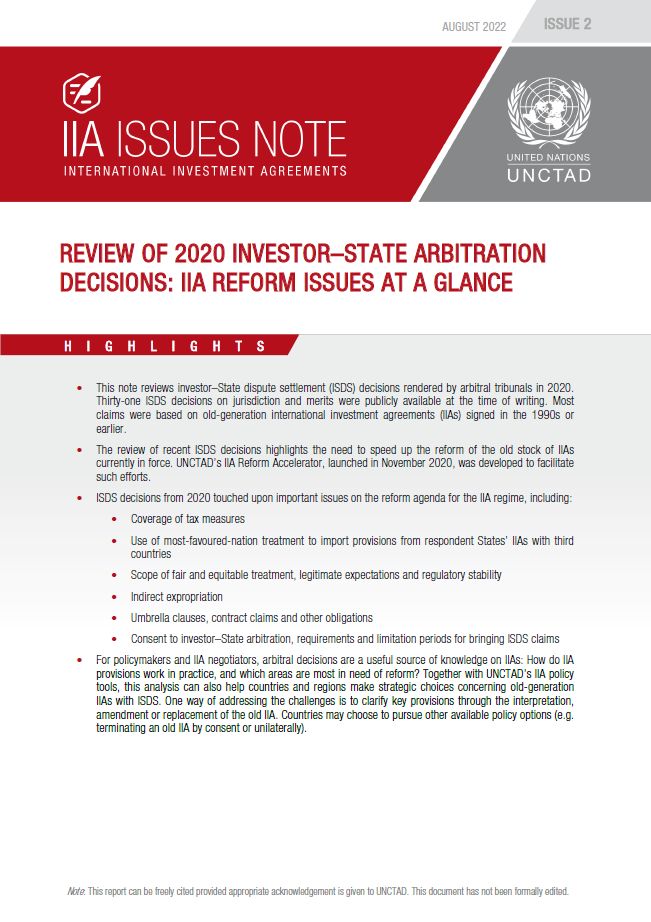Review of 2020 Investor–State Arbitration Decisions: IIA Reform Issues at a Glance
This IIA Issues Note reviews investor–State dispute settlement (ISDS) decisions rendered by arbitral tribunals in 2020. Thirty-one ISDS decisions on jurisdiction and merits were publicly available at the time of writing. Most claims were based on old-generation international investment agreements (IIAs) signed in the 1990s or earlier.
The review of recent ISDS decisions highlights the need to speed up the reform of the old stock of IIAs currently in force. UNCTAD’s IIA Reform Accelerator, launched in November 2020, was developed to facilitate such efforts.
ISDS decisions from 2020 touched upon important issues on the reform agenda for the IIA regime, including:
- Coverage of tax measures
- Use of most-favoured-nation treatment to import provisions from respondent States’ IIAs with third countries
- Scope of fair and equitable treatment, legitimate expectations and regulatory stability
- Indirect expropriation
- Umbrella clauses, contract claims and other obligations
- Consent to investor–State arbitration, requirements and limitation periods for bringing ISDS claims
The cases and issues highlighted in this note were selected after a detailed mapping of the 31 ISDS decisions, which is available as additional material.
For policymakers and IIA negotiators, arbitral decisions are a useful source of knowledge on IIAs: How do IIA provisions work in practice, and which areas are most in need of reform? Together with UNCTAD’s IIA policy tools, this analysis can also help countries and regions make strategic choices concerning old-generation IIAs with ISDS. One way of addressing the challenges is to clarify key provisions through the interpretation, amendment or replacement of the old IIA. Countries may choose to pursue other available policy options (e.g. terminating an old IIA by consent or unilaterally).
















